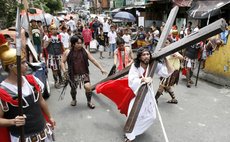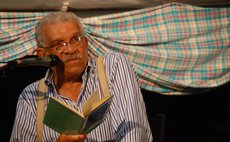Formation of youth
The role of the Church is the building of the Kingdom of God. Youth, as important members of the People of God, are called to take their place in that Kingdom. Introducing people into the Kingdom does not merely mean that people should be called to worship and assist in maintaining the structures of the Church. The challenge of the Church is to imbue people with the Spirit of God so that Christ may be seen to be alive and at work in their lives.
One great Church leader reminds us that, although the Kingdom of God is not of this world, it is in this world that it is won or lost. This is tremendously important in the post-modern world when the Church is severely challenged to display the full face of Christ, which is often lost amidst the feverish concerns which Christians have for self-progression, triumphalism and self-enhancement.
We live very much in a youth-centred world. More than ever, youth are open to outside influences. Today they are inspired and challenged by many currents in the world. Young people from Europe and the Caribbean, even baptized Catholics, are leaving their country to join the Islamic State (ISIS). What are we offering them?
Proper formation of youth has been sadly lacking. It has often not been seen as a priority. Indeed, even some priests have thought that young people should find their proper place and identity side by side with their parents. Such people have not understood the state of the world in which we live, which is characterised by the breakdown of family life.
We need to learn from history. We need, so to speak, to drink from our own wells. One big problem which we often encounter is, as one Christian writer puts it, "We had the experience, but we lacked the meaning." We need assistance in clarifying and analysing our experiences.
After the fall of the socialist regime under Maurice Bishop in Grenada and the overthrow of his successors by the U.S military and Caribbean forces, democracy was restored in 1983. Having gone through such a traumatic experience, people could then breathe freely. It was natural that a post-mortem, a reflection on the past experience of socialism should be made. The deprivation of human rights, the rejection of former values, freedom of expression and freedom of association, were discussed. At a gathering of Catholic youth, young people bewailed the fact that the Church had not prepared them for that experience. What this says is that they were not properly formed and as such were unable to face the socialist challenge.
We need to understand that the Church has been endowed with a tremendous mission by Christ, the Lord. The Church is not called to merely fit comfortably in society. No, she must continually examine closely the movements in society and the challenges that are brought to bear on the Christian in the modern world. This means that Church leaders must have a proper, enlightened understanding of the world in which we live and most not be afraid to confront it with truth and sincerity.
The world is always in need of transformation. This will never end. We need to avoid the seduction of seeking a place of rest. The challenge to seek comfort zones and even to identify ourselves with the world in which we live is very great. Gilbert Chesterton reminds us, "We need to be happy in this wonderworld without being for one moment too comfortable."
We are preparing for World Youth Day. The Catholic Church, following the leadership of Pope Paul VI has for the past many years been keeping this observance. We need to ask ourselves: What is the purpose? Why was it instituted? What do we expect to gain from it? What are our youth problems? Do we attempt to solve them by this annual observance?
I should like to suggest that we are not taking sufficient advantage of such a worthy celebration. One gets the impression that the organizers do not adequately understand the state of our youth in Dominica and how to address their needs.
The structure of the celebration should be examined. Cardinal Newman tells us that, "Youth needs a masculine religion." A specifically youth observance is a wonderful opportunity to address this need. I see no reason why ministers of Government should be asked to address the youth. They have ample time throughout the year to do this. Instead, we should have former Diocesan Youth Co-ordinators, as Steve Ferrol and Juliana Magloire, and other formerly active youth leaders such as Elizabeth Alfred, Eliud Williams to do that job.
There should be more emphasis on creativity. An exhibition of art and craft would be in order. Some sort of competition should be organized. Every endeavour should be made to put our youth on show.
We need to work towards the foundation of a Youth Centre. Catholic Youth need an environment where they can refresh and expand their minds, learn and relax at their own leisure. They need space which they can call their own, one which is enhancing and welcoming, one which is truly Christian and is imbued with the Catholic spirit.




